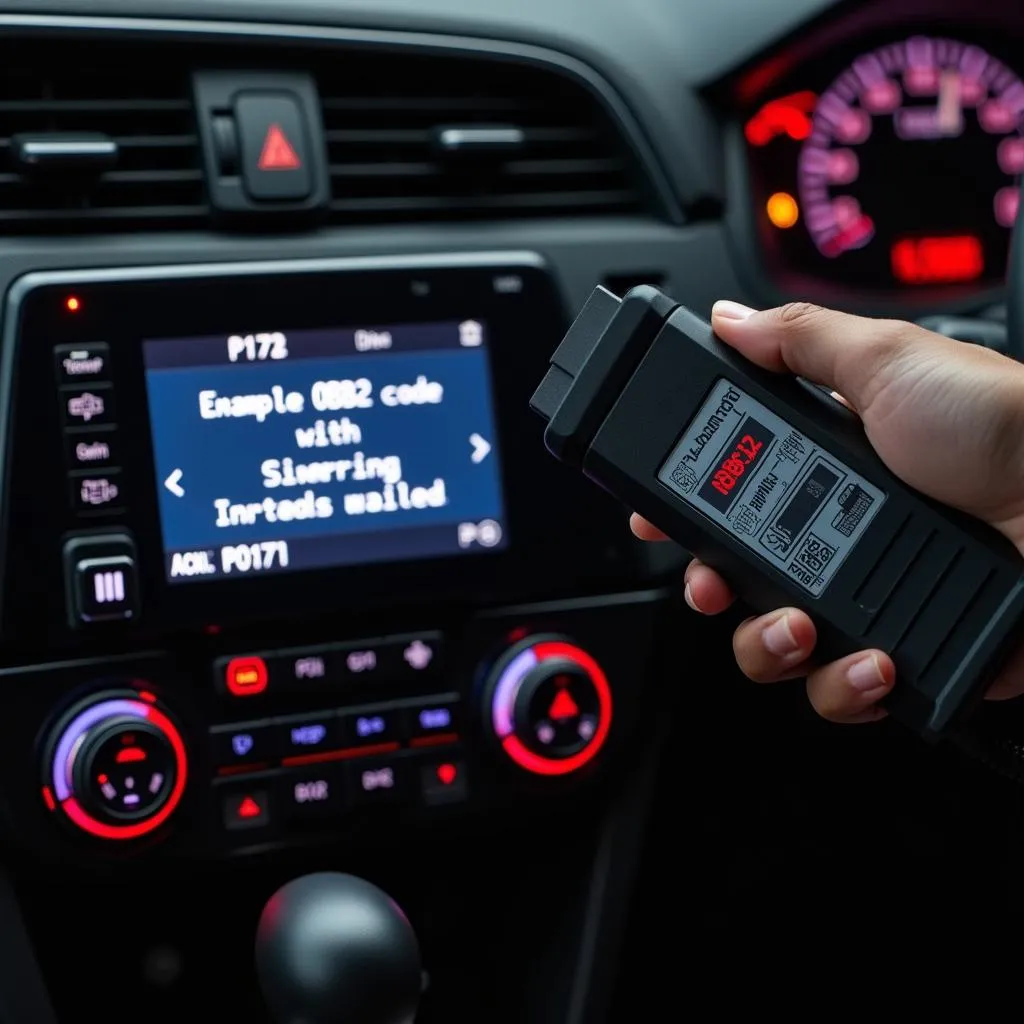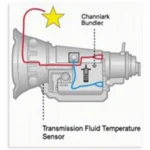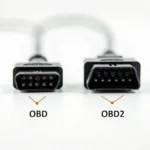Owning a Honda Civic with a turbocharged engine is a thrilling experience. The combination of fuel efficiency and peppy performance is hard to beat. However, like any complex machine, your Civic Turbo can encounter issues. This is where understanding “Civic Turbo OBD2” codes becomes crucial. These codes, displayed on your OBD2 scanner, are your car’s way of communicating about potential problems. This guide will demystify these codes, providing you with the knowledge to keep your Civic Turbo running smoothly.
What Does an OBD2 Scanner Tell You About Your Civic Turbo?
An OBD2 scanner acts as a window into your Civic Turbo’s engine control unit (ECU). When the ECU detects an issue, it generates a specific OBD2 code. This code, displayed on the scanner, pinpoints the system or component causing the problem.
For instance, a code like P0171 indicates a “System Too Lean (Bank 1).” This means the air-fuel mixture in your engine is off-kilter, with too much air compared to fuel.
Common Civic Turbo OBD2 Codes and Their Meanings
Let’s delve into some common OBD2 codes you might encounter with your Civic Turbo:
- P0234: Turbocharger/Supercharger Overboost Condition
- P0101: Mass Air Flow (MAF) Sensor Circuit Range/Performance Problem
- P0420: Catalyst System Efficiency Below Threshold (Bank 1)
- P0300: Random/Multiple Cylinder Misfire Detected
- P0138: O2 Sensor Circuit High Voltage (Bank 1, Sensor 2)
Keep in mind that these are just a few examples. Each code points to a specific area requiring attention.
Why is My Civic Turbo Showing an OBD2 Code?
A multitude of factors can trigger OBD2 codes in your Civic Turbo. Here’s a breakdown:
Engine Issues: Problems with spark plugs, ignition coils, fuel injectors, or the air intake system can disrupt the combustion process, leading to various codes.
Emissions System: Components like the catalytic converter, oxygen sensors, or the evaporative emissions system (EVAP) can trigger codes if they malfunction.
Turbocharger Issues: A failing wastegate, boost leaks, or problems with the turbocharger itself can cause overboost or underboost conditions, leading to specific codes.
Sensor Malfunctions: Faulty sensors, such as the MAF sensor, throttle position sensor (TPS), or oxygen sensors, can send incorrect data to the ECU, triggering codes.
How to Diagnose Civic Turbo OBD2 Codes
When facing an OBD2 code, remember:
- Don’t Panic: Seeing a code doesn’t necessarily mean a catastrophic engine failure.
- Gather Information: Research the specific code using online resources, forums, or a reliable OBD2 code database.
- Inspect Your Vehicle: Check for obvious issues like loose connections, damaged hoses, or worn-out components.
- Use Your OBD2 Scanner: Some scanners provide live data, allowing you to monitor engine parameters in real time and narrow down the problem.
- Seek Professional Help: If you’re unsure or uncomfortable tackling the issue yourself, consult a qualified mechanic specializing in Honda vehicles.
Preventing Future Civic Turbo OBD2 Codes
Taking proactive steps can significantly reduce the likelihood of encountering OBD2 codes:
- Regular Maintenance: Follow Honda’s recommended maintenance schedule for oil changes, filter replacements, and spark plug replacements.
- Quality Fuel and Oil: Using high-quality fuel and the correct oil grade for your Civic Turbo ensures optimal engine performance and longevity.
- Gentle Driving Habits: Avoiding aggressive acceleration, hard braking, and prolonged idling can minimize stress on the engine and turbocharger.
Conclusion
Understanding Civic Turbo OBD2 codes empowers you to take control of your car’s health. While some codes may require professional attention, others can be addressed with basic troubleshooting or preventative measures. By staying informed and proactive, you can ensure a smooth and enjoyable driving experience with your Honda Civic Turbo.
FAQs:
Q: Can I drive my Civic Turbo with an OBD2 code?
A: While some codes may allow for continued driving, it’s crucial to consult a mechanic, especially if you notice performance issues or warning lights.
Q: Will resetting the OBD2 code solve the problem?
A: Resetting the code only clears the code from the ECU’s memory. It doesn’t address the underlying issue.
Q: How often should I scan my Civic Turbo for OBD2 codes?
A: It’s a good practice to scan your vehicle at least once a month or before long trips.
Need more information on how to pass inspection with OBD2 codes related to your Honda Civic Turbo’s tech? Check out our article on how to pass inspection obd2 turbo honda tech.
For further assistance, don’t hesitate to reach out to our 24/7 customer support team via WhatsApp at +1(641)206-8880 or email us at [email protected].


